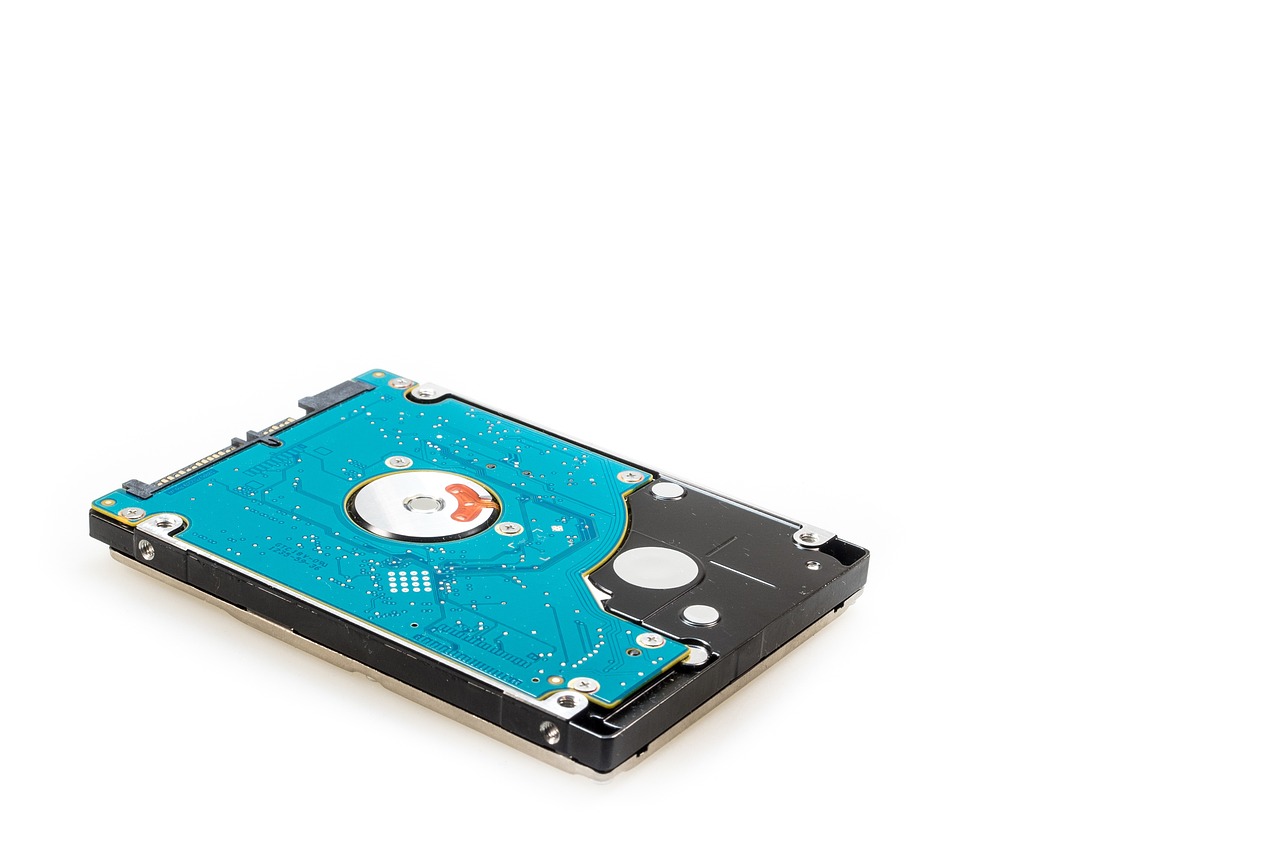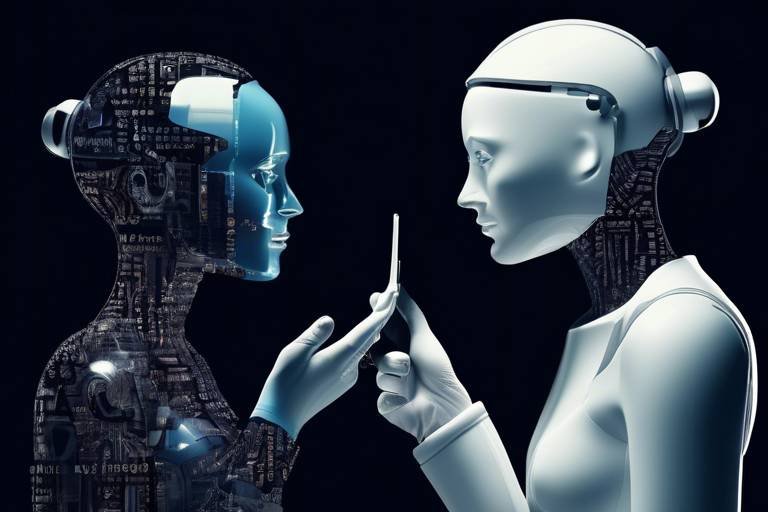Preparing for the AI Future: The Skills You'll Need
As we stand on the brink of a technological revolution, the question isn't whether AI will change our lives, but rather how we can prepare for that change. The AI-driven world is not just a distant reality; it's already here, and it's reshaping every industry from healthcare to finance, education to entertainment. So, how do we equip ourselves with the skills necessary to thrive in this new landscape? The answer lies in a combination of both technical and soft skills. In this article, we will explore the essential skills you need to not just survive but to excel in an AI-enhanced environment.
First off, let’s talk about the **fundamentals of AI**. Understanding what AI is, how it works, and its various applications is crucial for anyone looking to navigate the future workforce. Imagine trying to drive a car without knowing how to operate the steering wheel; that’s what it’s like to enter the AI world without grasping its basic concepts. Familiarity with key terms like machine learning, neural networks, and natural language processing will give you a solid foundation to build upon.
Next, we dive into the realm of technical skills. The demand for professionals who can work with AI technologies is skyrocketing, and this means that having a strong technical toolkit is non-negotiable. Key areas to focus on include programming languages, data analysis, and machine learning techniques. Let’s break these down further to see why they are so vital.
When it comes to programming languages, Python and R stand out as the most relevant for anyone looking to make their mark in AI. Python is renowned for its simplicity and versatility, making it the go-to language for many AI practitioners. It’s like the Swiss Army knife of programming languages—capable of handling everything from web development to data science. On the other hand, R shines in the realm of data analysis and visualization. If you want to turn raw data into actionable insights, R is your best friend. Both languages complement each other beautifully, and having a grasp of both can set you apart in the job market.
Moreover, understanding data literacy is paramount. In an age where data is often referred to as the new oil, knowing how to interpret and manipulate data is crucial. It’s not just about collecting data; it’s about making sense of it and using it to drive decisions. Whether you’re designing an AI model or simply analyzing trends, being data literate allows you to extract meaningful insights that can guide your actions.
Now, while technical skills are undeniably important, let’s not overlook the significance of soft skills. In a fast-paced, AI-enhanced workplace, interpersonal skills can make all the difference. Think about it: even the most advanced AI system needs human oversight and collaboration to function optimally. Skills like critical thinking and adaptability become essential in this context. Critical thinking enables you to analyze problems and develop innovative solutions, while adaptability allows you to embrace change and learn new tools quickly. In a world where AI technologies evolve at breakneck speed, being open to learning is not just beneficial; it’s essential.
In conclusion, preparing for an AI-driven future requires a multifaceted approach. By combining technical skills like programming and data analysis with soft skills such as critical thinking and adaptability, you can position yourself for success in an ever-changing landscape. Remember, the AI future is not something to fear; it’s an opportunity waiting to be seized. Equip yourself with the right skills, and you'll not only survive but thrive in this exciting new world.
- What are the key technical skills needed for AI? Programming languages like Python and R, along with data analysis and machine learning techniques, are essential.
- How important are soft skills in the AI era? Soft skills like critical thinking and adaptability are crucial for effective collaboration and innovation in AI-enhanced workplaces.
- Can I learn these skills online? Absolutely! There are numerous online platforms offering courses in AI, programming, and data analysis.
- Is it too late to start learning about AI? Not at all! It’s never too late to learn. The key is to start now and stay committed to continuous improvement.

Understanding AI Fundamentals
Grasping the basic concepts of artificial intelligence (AI) is crucial for anyone looking to navigate the future workforce. As we stand on the brink of a technological revolution, understanding AI fundamentals is not just for tech enthusiasts; it’s becoming a necessity across various fields. But what exactly is AI? In simple terms, AI refers to the ability of a machine to mimic human intelligence, enabling it to perform tasks that typically require human cognitive functions, such as learning, reasoning, and problem-solving.
To get a solid grasp of AI, it’s essential to familiarize yourself with some key principles and terminologies that form its foundation. Here are a few critical concepts:
- Machine Learning (ML): A subset of AI that focuses on the development of algorithms that allow computers to learn from and make predictions based on data.
- Neural Networks: Inspired by the human brain, these are systems of algorithms that attempt to recognize underlying relationships in a set of data.
- Natural Language Processing (NLP): This allows machines to understand and interpret human language, making it possible for us to interact with technology in a more natural way.
- Deep Learning: A more advanced subset of machine learning that uses layered neural networks to analyze various factors of data.
Now, you might be wondering, why should I care about these terms? Well, understanding these fundamentals will not only help you grasp how AI works but also empower you to leverage it in your career. Imagine trying to navigate a new city without knowing the layout; it would be a daunting task! Similarly, without a solid foundation in AI, you might find yourself lost in the rapidly evolving tech landscape.
Moreover, the impact of AI is already being felt across various industries, from healthcare to finance and beyond. For instance, in healthcare, AI algorithms are being used to analyze medical data, helping doctors make better decisions. In finance, AI systems are analyzing market trends to predict stock movements. This integration of AI into everyday business processes highlights the importance of understanding its fundamentals.
In summary, understanding AI fundamentals is not just about knowing the buzzwords; it’s about preparing yourself for a future where AI will play an integral role in our lives. By equipping yourself with this knowledge, you position yourself to adapt and thrive in an AI-driven world. So, let’s get ready to dive deeper into the technical skills that will complement this foundational knowledge!

Technical Skills for AI
In today's rapidly evolving landscape, having a solid grasp of technical skills is not just an advantage; it's a necessity for anyone aiming to make their mark in the world of artificial intelligence. Think of it as having the right tools in your toolbox—without them, you're likely to struggle when faced with complex problems. But what exactly are these technical skills? Let’s break it down into a few key areas that are absolutely crucial for aspiring AI professionals.
First and foremost, programming languages are at the heart of AI development. While there are numerous languages to choose from, a couple stand out as particularly important: Python and R. Python is often hailed as the go-to language for AI applications due to its simplicity and versatility. It allows developers to write clean and efficient code, which is essential for building robust AI systems. On the other hand, R shines in the realm of data analysis and statistical computing. Its powerful libraries for data visualization make it an indispensable tool for anyone looking to derive insights from data.
Next up is data literacy. In an age where data drives decisions, being able to interpret and manipulate data is crucial. Think of data as the new oil; it's valuable, but only if you know how to refine it. Data literacy enables you to not just understand the numbers but to extract meaningful insights that can guide your AI projects. Whether you're cleaning datasets, analyzing trends, or visualizing results, being data literate is a skill that will set you apart in an AI-driven world.
To give you a clearer picture, here's a quick comparison of the two programming languages:
| Feature | Python | R |
|---|---|---|
| Ease of Learning | High | Moderate |
| Data Manipulation | Excellent (Pandas, NumPy) | Good (dplyr, tidyr) |
| Data Visualization | Good (Matplotlib, Seaborn) | Excellent (ggplot2) |
| Community Support | Large | Growing |
As you can see, both languages have their strengths, and the best choice often depends on your specific needs and the projects you wish to tackle. Embracing these technical skills will not only enhance your employability but also empower you to contribute meaningfully to the exciting field of AI.
In conclusion, mastering technical skills such as programming languages and data literacy is essential for anyone looking to thrive in an AI-driven world. These skills enable you to navigate the complexities of AI technologies and harness their potential for innovation and problem-solving. So, whether you're just starting out or looking to enhance your existing skill set, focus on building a strong foundation in these areas, and you'll be well on your way to success.
- What programming language should I start with for AI? Python is highly recommended due to its simplicity and extensive libraries.
- Do I need to know statistics for AI? Yes, understanding statistics is crucial for data analysis and making informed decisions.
- Is data literacy important? Absolutely! Being data literate allows you to interpret and utilize data effectively.
- Can I learn these skills online? Yes, there are numerous online courses and resources available for learning AI-related skills.

Programming Languages
When it comes to thriving in an AI-driven world, are your best friends. Think of them as the building blocks of AI development, enabling you to create, innovate, and automate processes. In this digital age, understanding how to code is not just a nice-to-have skill; it's becoming a necessity. Whether you're aiming to develop intelligent applications or analyze vast amounts of data, being proficient in certain programming languages can set you apart from the crowd.
Among the myriad of programming languages available, two stand out in the realm of artificial intelligence: Python and R. Each of these languages brings unique strengths to the table, making them essential tools for AI practitioners. Let's dive a little deeper into why these languages are so crucial.
Python is often hailed as the go-to language for AI development. Its simplicity and readability make it an excellent choice for beginners and seasoned developers alike. Imagine trying to build a complex structure with a complicated set of tools; it would be frustrating, right? Now, picture having a user-friendly toolkit that simplifies the entire process. That's what Python does for AI. With a vast array of libraries such as TensorFlow, Keras, and Scikit-learn, Python allows developers to implement machine learning algorithms with ease. It's like having a Swiss Army knife at your disposal—versatile and powerful.
On the other hand, R shines when it comes to data analysis and visualization. If Python is the Swiss Army knife, R is the master chef's knife—precise and tailored for specific tasks. R excels in statistical analysis, making it an invaluable resource for data scientists who need to interpret complex datasets. The ability to visualize data through libraries like ggplot2 allows professionals to present their findings in a compelling manner, transforming raw numbers into insightful stories. This skill is crucial, as the ability to communicate data-driven insights can make or break decision-making processes in any organization.
To summarize, here are the key programming languages to focus on for a successful career in AI:
- Python: Best for general AI development due to its simplicity and extensive libraries.
- R: Ideal for statistical analysis and data visualization, enhancing your ability to make data-driven decisions.
In conclusion, mastering programming languages like Python and R is not just an option; it’s a strategic move in your career. As you navigate the complexities of AI, these languages will empower you to create innovative solutions and effectively analyze data, ensuring you remain competitive in an ever-evolving job market. So, why wait? Dive into coding today and unlock the doors to a brighter, AI-enhanced future!
- What is the best programming language for beginners in AI?
Python is often recommended due to its simplicity and readability, making it accessible for beginners.
- Is R only used for data analysis?
While R is primarily known for data analysis, it also has capabilities for machine learning and statistical modeling.
- Can I learn Python and R simultaneously?
Yes, many learners choose to study both languages together, as they complement each other well in the field of AI.

Python for AI
When it comes to developing applications in the realm of artificial intelligence, Python stands out as a powerhouse. Why is that, you ask? Well, Python is not just a programming language; it's a versatile tool that simplifies complex tasks, making it the preferred choice for many AI practitioners. Imagine trying to solve a complex puzzle with a tool that is clunky and difficult to use. Frustrating, right? Now, picture yourself using a sleek, intuitive tool that fits perfectly in your hands. That’s what Python does for developers in the AI space.
One of the most significant advantages of Python is its readability. This means that even if you’re new to coding, you can quickly grasp the syntax and start writing code that’s not only functional but also easy to understand. This feature is particularly beneficial for teams, as it allows multiple people to collaborate on projects without getting bogged down by confusing code. Furthermore, Python has a vast ecosystem of libraries and frameworks specifically designed for AI, such as TensorFlow, Keras, and PyTorch. These libraries provide pre-built functions that can save developers a tremendous amount of time. Instead of starting from scratch, you can leverage these tools to build sophisticated models with ease.
Another reason why Python shines in the AI world is its strong community support. Imagine having a team of experts ready to help you at any moment. That’s the essence of the Python community. Whether you're facing a coding challenge or looking for advice on best practices, there’s a wealth of resources available, including forums, tutorials, and documentation. This community-driven approach not only accelerates learning but also fosters innovation as developers share their findings and improvements.
Moreover, Python’s versatility extends beyond just AI. It can be used for web development, data analysis, and even scripting. This means that as you become proficient in Python, you’re not just limiting yourself to AI; you’re opening doors to various career paths. The skills you acquire can be applied across multiple domains, making you a more adaptable and valuable asset in the job market.
To sum it up, Python is the go-to language for AI development due to its readability, extensive libraries, strong community support, and versatility. If you’re looking to dive into the world of AI, mastering Python is not just a recommendation; it’s a necessity. So, ask yourself, are you ready to unlock the potential of AI with Python?
- Why is Python preferred for AI development? Python's readability, extensive libraries, and strong community support make it ideal for AI applications.
- What are some popular Python libraries for AI? Some widely used libraries include TensorFlow, Keras, and PyTorch.
- Can I use Python for other programming tasks? Yes, Python is versatile and can be used for web development, data analysis, and automation.
- Is Python suitable for beginners? Absolutely! Python's simple syntax makes it accessible for those new to programming.

R for Data Analysis
When it comes to data analysis, R is a powerhouse that stands out in the vast landscape of programming languages. Its capabilities extend far beyond mere number crunching; R is designed specifically for statistical analysis and data visualization, making it an essential tool for anyone looking to harness the power of data in the age of AI. Imagine trying to navigate through a dense forest without a map; that's what data analysis feels like without the right tools. R acts as your compass, guiding you through the complexities of data interpretation.
One of the most compelling aspects of R is its extensive library of packages, which are pre-built functions that simplify complex analyses. For instance, packages like ggplot2 allow users to create stunning visual representations of data with minimal effort. This not only enhances the clarity of your findings but also makes your presentations more engaging. Just think about it: would you rather present a dull spreadsheet filled with numbers or a vibrant graph that tells a story? R makes the latter possible.
Moreover, R is particularly well-suited for tasks such as data cleaning, manipulation, and exploratory data analysis. It empowers users to transform raw data into meaningful insights. For example, suppose you have a dataset containing customer information and sales figures. Using R, you can effortlessly filter, aggregate, and visualize this data to uncover trends and patterns that might otherwise go unnoticed. This capability is crucial for making informed decisions in an AI-driven environment.
In addition to its analytical prowess, R fosters a vibrant community of users and contributors. This means that if you ever encounter a problem or need guidance, you can easily find resources, tutorials, and forums filled with experienced users eager to help. The collaborative nature of the R community is akin to having a vast library at your fingertips—no matter what question you have, someone has likely tackled it before.
In summary, R is not just another programming language; it is a vital tool for anyone serious about data analysis. Its focus on statistical computing and data visualization, combined with a supportive community, makes it an invaluable asset in the AI landscape. As industries increasingly rely on data-driven decision-making, mastering R can set you apart in the job market. So, are you ready to dive into the world of R and unlock the potential of your data?
- What is R used for? R is primarily used for statistical analysis, data visualization, and data manipulation.
- Is R easy to learn for beginners? Yes, R has a user-friendly syntax and a wealth of resources available for beginners.
- Can R be integrated with other programming languages? Absolutely! R can be integrated with languages like Python and SQL to enhance its capabilities.

Data Literacy
In today's AI-driven landscape, has emerged as a fundamental skill that transcends traditional boundaries. It is not merely about being able to read or write data; it's about understanding the stories that data tells and how to leverage that information to make informed decisions. Imagine data as a vast ocean, and data literacy as your ability to navigate its waters. Without this skill, you risk drowning in a sea of numbers and statistics, unable to extract valuable insights.
At its core, data literacy encompasses several key competencies. First and foremost, it involves the ability to interpret data accurately. This means not just looking at a chart or graph, but understanding what the trends indicate and how they relate to real-world scenarios. For instance, if you see a spike in customer complaints during a specific period, a data-literate individual would dive deeper to analyze the factors contributing to that spike, rather than simply noting the increase.
Moreover, data literacy extends to manipulating data effectively. This includes skills such as cleaning, organizing, and transforming data into formats that are useful for analysis. Picture this as preparing ingredients for a delicious meal; without proper preparation, the final dish may not turn out as expected. In the same way, poorly organized data can lead to misguided conclusions and ineffective strategies.
Furthermore, data literacy is about communicating insights clearly and persuasively. Once you've analyzed the data, the next step is to share your findings with others. This is where storytelling comes into play. A data-literate person can take complex data sets and translate them into compelling narratives that resonate with stakeholders. Think of it as being a translator between the language of data and the language of business; you're making the information accessible and actionable.
To illustrate the importance of data literacy further, consider the following table that outlines the key components:
| Component | Description |
|---|---|
| Interpretation | Understanding and analyzing data trends and patterns. |
| Manipulation | Cleaning and organizing data for effective analysis. |
| Communication | Translating data insights into clear narratives for stakeholders. |
As we move deeper into the AI era, the demand for data literacy will only continue to grow. Companies are increasingly relying on data to drive their decision-making processes, making it imperative for professionals across all sectors to enhance their data skills. Whether you're in marketing, finance, healthcare, or any other field, being data literate will empower you to contribute meaningfully to your organization’s objectives.
In summary, data literacy is not just a nice-to-have skill; it is a critical competency that will differentiate successful professionals in the AI landscape. By honing your ability to interpret, manipulate, and communicate data effectively, you position yourself as a valuable asset in an increasingly data-driven world. So, are you ready to dive into the data ocean and unlock its treasures?
- What is data literacy? Data literacy is the ability to read, understand, create, and communicate data as information.
- Why is data literacy important in the AI era? It enables professionals to make informed decisions based on data insights, which is crucial for success in a data-driven environment.
- How can I improve my data literacy skills? You can improve your data literacy by taking online courses, practicing data analysis, and engaging with data visualization tools.

Soft Skills in the AI Era
The rise of artificial intelligence (AI) is reshaping the workforce, but it's not just about crunching numbers or coding algorithms. In this brave new world, soft skills are emerging as the secret sauce that can make or break your career. Think of soft skills as the glue that holds teams together, fostering collaboration and creativity in an environment increasingly dominated by technology. As AI takes over routine tasks, the ability to connect with others and think critically will set you apart from the crowd.
So, what exactly are these soft skills that you need to thrive in the AI era? Let’s dive into a couple of key competencies that are becoming essential:
- Critical Thinking: In a world where AI can analyze data faster than a speeding bullet, critical thinking allows you to sift through the information and make informed decisions. It’s like being a detective in a sea of data—you're not just accepting what you see; you're questioning, analyzing, and synthesizing information to come up with innovative solutions.
- Adaptability: The tech landscape is evolving at lightning speed, and if you’re not willing to adjust your sails, you might find yourself left behind. Adaptability is the ability to embrace change and learn new skills quickly. Imagine being a chameleon, able to change your colors depending on the environment; that's the kind of flexibility you need to succeed in an AI-driven world.
Moreover, effective communication has never been more crucial. With teams often working remotely and relying on digital tools, being able to convey your ideas clearly and listen actively is paramount. It’s not just about talking; it’s about creating an open dialogue where everyone feels valued and heard. This is especially important when working on AI projects that require input from diverse stakeholders, including data scientists, business analysts, and even end-users.
Another soft skill to keep in your toolkit is emotional intelligence. This involves understanding your own emotions and those of others, allowing you to navigate workplace dynamics with ease. In an AI world where algorithms might drive decisions, having a human touch can lead to better teamwork and a more inclusive environment. It's like being the heart in a machine—keeping the human element alive even when technology takes the lead.
In summary, while technical skills will get your foot in the door, it's your soft skills that will help you climb the ladder. As we move further into the AI era, remember that it's not just about what you know, but how you interact with others, solve problems, and adapt to change that will define your success. So, invest time in honing these skills, and you'll not only survive but thrive in this exciting new landscape.
Q: What are soft skills, and why are they important in the AI era?
A: Soft skills refer to interpersonal and communication skills that enable individuals to work effectively with others. In the AI era, these skills are crucial because they facilitate collaboration, innovation, and adaptability in a rapidly changing work environment.
Q: Can I improve my soft skills?
A: Absolutely! Soft skills can be developed through practice and experience. Engaging in team activities, seeking feedback, and participating in workshops focused on communication and emotional intelligence can significantly enhance your abilities.
Q: How do I balance technical and soft skills?
A: It's essential to cultivate both types of skills. While technical skills may help you land a job, soft skills will enable you to excel and advance in your career. Aim for a balanced approach by dedicating time to learning new technologies while also focusing on building relationships and improving your communication abilities.

Critical Thinking
In today's fast-paced world, has emerged as a vital skill, especially in the realm of artificial intelligence. But what exactly does it mean to think critically? At its core, critical thinking is the ability to analyze information, evaluate evidence, and make reasoned conclusions. Imagine it as a mental toolkit that equips you to tackle complex problems and navigate through the overwhelming amount of data that AI can generate. In an age where AI systems can process information at lightning speed, the human ability to apply logic and reasoning becomes indispensable.
One of the most compelling aspects of critical thinking is its role in decision-making. When faced with a situation that involves AI, such as determining the best algorithm for a specific task or interpreting the results from a machine learning model, critical thinkers can sift through the noise and identify what truly matters. They ask the right questions, such as:
- What data is being used, and is it reliable?
- Are there biases in the AI model that could skew results?
- What are the potential consequences of this decision?
By honing these questioning skills, individuals can better understand the implications of AI technologies in their work. For instance, consider a marketing professional utilizing AI to analyze consumer behavior. A critical thinker would not only accept the AI's recommendations but would also scrutinize the underlying data and the assumptions made by the algorithm. This level of engagement ensures that decisions are not just based on automated outputs but are informed by a deeper understanding of the context.
Furthermore, critical thinking fosters innovation. It encourages individuals to think outside the box and explore alternative solutions. In an AI-driven environment, where standardization can sometimes lead to stagnation, the ability to challenge the status quo is invaluable. For example, a team working on an AI project might face a roadblock; a critical thinker can propose a novel approach or a different methodology that could lead to breakthroughs.
In essence, critical thinking is not just about problem-solving; it's about fostering a culture of inquiry and continuous improvement. It empowers professionals to engage with AI technologies meaningfully, ensuring that they are not just users of these tools but also active participants in shaping their outcomes. In a world where AI is increasingly integrated into various sectors, cultivating critical thinking skills can set you apart from the crowd, making you a valuable asset in any organization.
As we embrace the AI future, remember that your ability to think critically will be one of your strongest allies. It’s the difference between being a passive observer and an active contributor in the AI landscape. So, sharpen those analytical skills, question the data, and don’t shy away from challenging assumptions. The future is bright for those who think critically!
- What is critical thinking? Critical thinking is the ability to analyze information, evaluate evidence, and make reasoned conclusions.
- Why is critical thinking important in AI? It helps individuals make informed decisions, understand data implications, and foster innovation.
- How can I improve my critical thinking skills? Engage in activities that require analysis, ask probing questions, and seek diverse perspectives.

Adaptability
In today's fast-paced world, especially in the realm of artificial intelligence, adaptability isn't just a nice-to-have; it’s a must-have. Imagine trying to navigate a bustling city without a map. You’d find yourself lost, frustrated, and possibly in a bit of trouble. Similarly, as AI technologies evolve, professionals must be ready to pivot and adjust their skills to keep up with the changing landscape. Adaptability means being open to new ideas, embracing change, and continuously learning. It’s like being a chameleon, blending in with your environment to thrive.
Let’s break it down a bit further. The ability to adapt can manifest in several ways:
- Continuous Learning: The tech world is always changing, and staying updated with the latest trends and tools is crucial. This means taking online courses, attending workshops, or even just reading up on the latest AI breakthroughs.
- Embracing New Tools: New AI tools and platforms are popping up all the time. Being willing to experiment with these technologies can set you apart from the crowd. Think of it as trying out a new gadget; the more you play with it, the better you understand its capabilities.
- Collaborative Mindset: Working in teams often requires flexibility. You might need to adjust your communication style or workflow to fit the group's needs. Being adaptable in this context can lead to more innovative solutions and a more harmonious work environment.
But why is adaptability so critical in an AI-driven world? For starters, the pace of innovation is staggering. AI is not just a buzzword; it's reshaping industries from healthcare to finance. If you’re not willing to adapt, you risk becoming obsolete. Think about it: those who cling to outdated methods and resist change may find themselves left behind, while those who embrace new technologies and methodologies can ride the wave of progress.
Moreover, adaptability fosters resilience. In the face of setbacks or failures, adaptable individuals can regroup, reassess, and forge ahead with renewed vigor. It’s about having the mindset that every challenge is an opportunity for growth. In a workplace increasingly influenced by AI, being adaptable can also enhance your employability, as employers are on the lookout for candidates who can thrive in uncertainty and change.
In summary, adaptability is not just about surviving in an AI-enhanced workplace; it’s about thriving. By cultivating a mindset geared towards flexibility and continuous improvement, you position yourself as a valuable asset in any organization. So, are you ready to embrace the change and become that adaptable professional everyone wants on their team?
Q1: Why is adaptability important in the AI field?
A1: Adaptability is crucial because the AI landscape is constantly evolving. Professionals need to keep up with new technologies and methodologies to remain relevant and effective in their roles.
Q2: How can I become more adaptable in my career?
A2: You can improve your adaptability by engaging in continuous learning, being open to new tools, and developing a collaborative mindset. Regularly challenge yourself to step outside your comfort zone.
Q3: What skills complement adaptability?
A3: Skills such as critical thinking, problem-solving, and effective communication complement adaptability. Together, they enable you to navigate changes and challenges more effectively.
Frequently Asked Questions
- What are the essential skills needed for the AI-driven future?
To thrive in an AI-driven world, you'll need a mix of technical and soft skills. Technical skills include programming languages like Python and R, data analysis, and machine learning. On the soft skills side, critical thinking and adaptability are crucial for navigating the rapidly changing landscape.
- Why is understanding AI fundamentals important?
Grasping the basic concepts of artificial intelligence is essential for anyone looking to succeed in the future workforce. It helps you understand how AI impacts various industries, enabling you to make informed decisions and adapt to new technologies.
- Which programming languages should I learn for AI?
Python and R are the two most recommended programming languages for AI development. Python is favored for its simplicity and versatility, while R is essential for statistical analysis and data visualization, making it invaluable for data-driven decision-making.
- How does data literacy impact my ability to work with AI?
Data literacy is crucial in an AI context because it enables you to interpret and manipulate data effectively. Understanding data allows you to leverage AI tools more efficiently and make better decisions based on insights derived from data analysis.
- What role do soft skills play in the AI era?
Soft skills are just as important as technical skills in the AI landscape. Skills like critical thinking help you analyze problems and develop innovative solutions, while adaptability ensures you can learn and adjust to new AI tools and methodologies as they emerge.
- Can I learn AI skills on my own?
Absolutely! Many resources are available online, including courses, tutorials, and communities that can help you learn AI skills at your own pace. Self-study can be a great way to build your knowledge and expertise in this exciting field.
- How can I stay updated with the latest trends in AI?
Staying updated with AI trends involves following industry news, subscribing to relevant blogs and podcasts, and participating in online forums or communities. Networking with professionals in the field can also provide insights into emerging technologies and best practices.
- Is a formal education necessary for a career in AI?
While formal education can provide a strong foundation, it's not strictly necessary. Many successful AI professionals come from diverse educational backgrounds. What matters most is your ability to demonstrate relevant skills and knowledge through projects and practical experience.



















